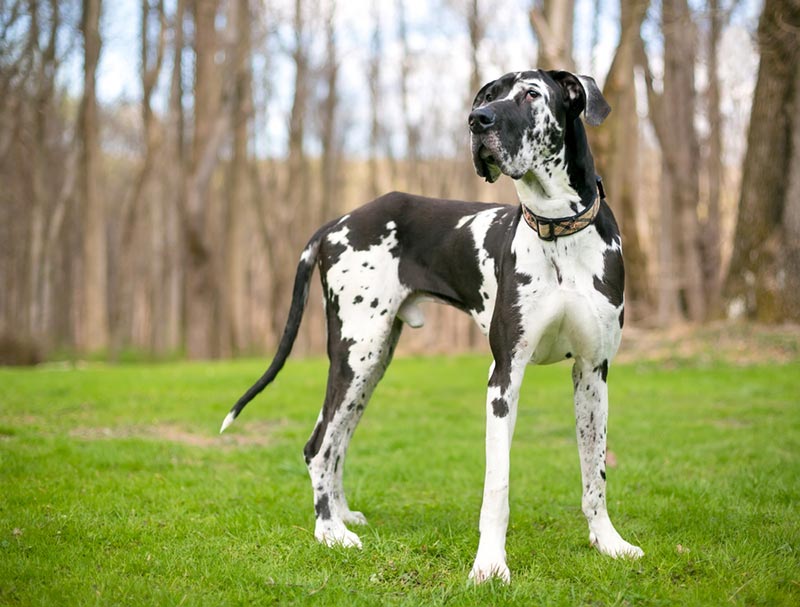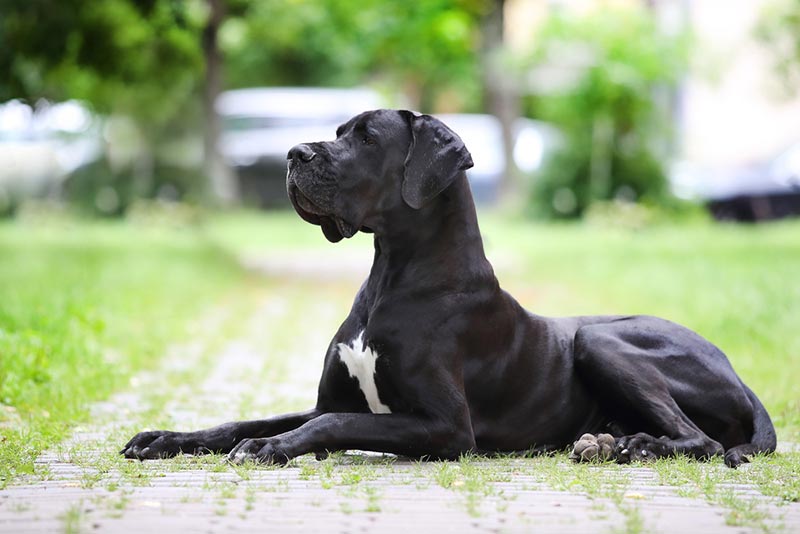Do Great Danes Shed a Lot? Breed Facts & Tips to Control It
Updated on

Shedding is one of the parts of owning a dog that is just not fun. It may not be as bad as scooping poop, but it’s pretty annoying. Shedding can quickly take over your home with a high-shedding breed. Many people who want to avoid shedding seek out shorthair dog breeds to quell some of the shedding, but this doesn’t always work in their favor. Why? Because how much your dog sheds isn’t necessarily related to their coat length, but their coat type.
Great Danes are big dogs that take up a lot of space, so you may be hoping that a Great Dane won’t take up space with their physical presence and their shed coat. In general, Great Danes are moderate shedders, with some being considered heavy shedders. Here’s what you need to know about Great Danes and shedding.
Do Great Danes Shed a Lot?
If you’re looking for a low-shedding dog breed, then it’s best that you skip the mighty Great Dane. These dogs are considered to be moderate shedders, so their shed coat isn’t going to take over your life like a German Shepherd’s might, but you can still expect to find little hairs in large quantities all over your house.
Great Danes have a short, single-thickness coat, so it may seem like they shouldn’t shed a lot. There are a few factors that influence how much they shed, though. The first is simply their large size. Think of how often you find your own hair around your house and then consider how much worse that would be if you were covered head to toe in that hair. Then your shed might be comparable to a Great Dane, albeit longer.
The primary reason for the amount of fur that Great Danes shed is how their coat grows. The hair growth cycles that impact your dog’s coat growth, the anagen, catagen, telogen, and exogen phases, can vary between breeds. For moderate to heavy shedders, like Great Danes, the catagen and exogen phases may occur most of the time, resulting in a coat that is nearly constantly in flux.

Should I Shave My Great Dane to Control Their Shedding?
For most dog breeds, shaving the entire coat down isn’t recommended. Your dog’s coat is responsible for helping your dog maintain their body temperature in all temperatures, and shaving their coat reduces their ability to maintain their body temperature.
Shaving also doesn’t decrease shedding. All it does is shave the fur down to a shorter level, which is just going to leave you with smaller hairs than normal all over your house. They might even be pricklier and more annoying than before.
The better option for controlling your Great Dane’s shedding is to provide excellent coat care. This consists of regularly brushing your dog with a brush appropriate for their coat type. Curry brushes are a great option for Great Dane coats. Bathing your dog can help reduce their shedding but bathing them too much will remove the natural oils from the skin, resulting in dry skin. Dry and potentially irritated skin is likely to shed more heavily than skin that is healthy.
Topical moisturizers formulated for dogs can help to keep your dog’s skin and coat healthy, and you can also consider adding omega-3 fatty acids to your dog’s diet to support healthy skin and coat. Some foods are formulated specifically to support skin health, which may also reduce shedding.

In Conclusion
Great Danes are moderate shedders, with some being considered heavy shedders. Their shedding can be reduced with good skin and coat care and maintenance, but there is no way around your Great Dane shedding. Their coats are designed to shed, so you can’t really expect anything else.
If your dog is shedding excessively and seems to be itchy or has flaky, dry skin, then it may be time to talk to your vet about potential allergens and supplements or diet changes to support healthier skin and coat.
Featured Image Credit: Mary Swift, Shutterstock












